These fun riddles for kids are fun brain teasers that stimulate their minds and get their brains working. Solving them is such a fun kid’s activity and one that the whole family can do together.
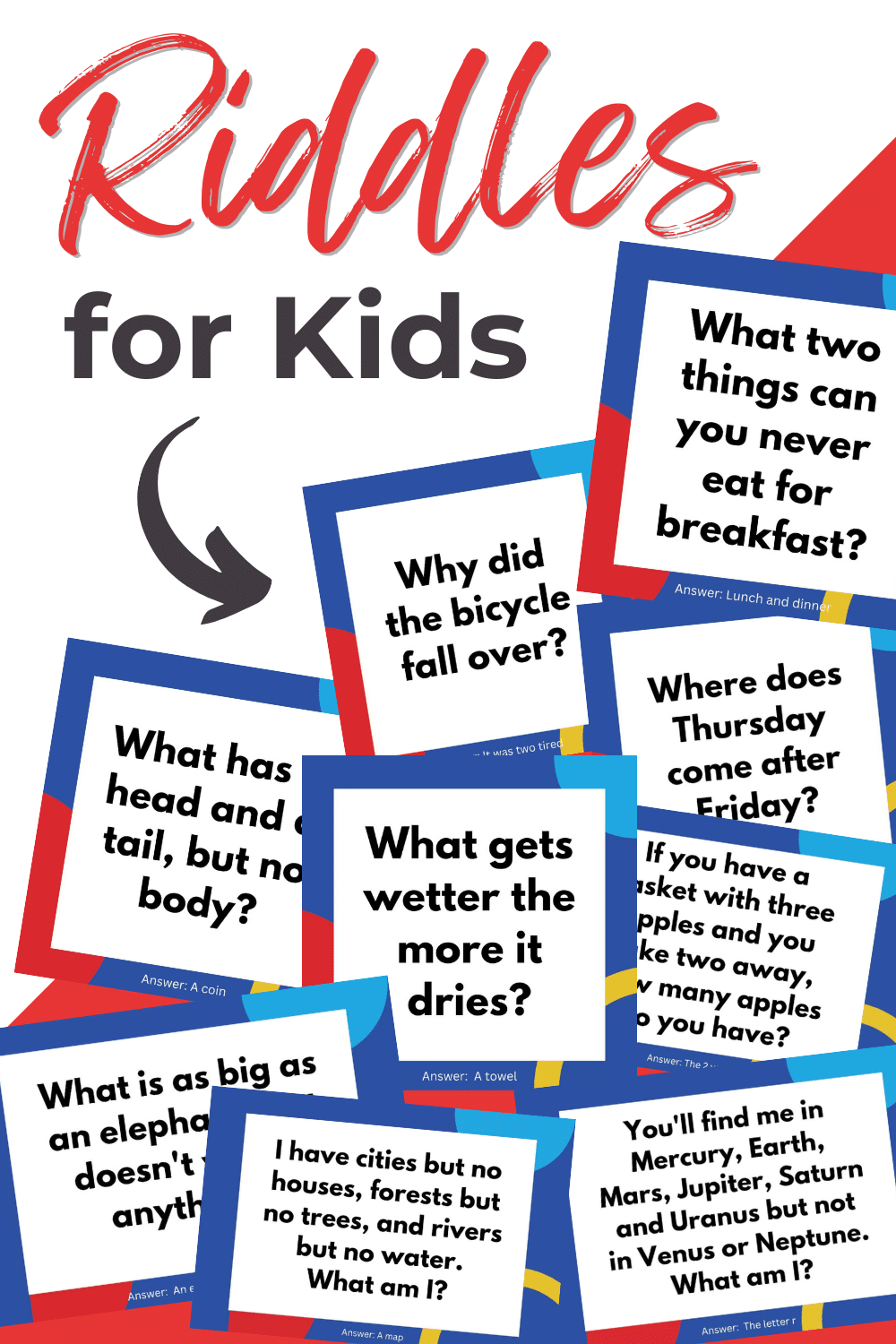
What Are Riddles?
According to the dictionary. a riddle is a statement or question intentionally phrased so as to require ingenuity in ascertaining its answer or meaning (often involving a double or hidden meaning), and is typically game-based.
My definition is that they are fun brain bending questions that are challenging to solve and make you think outside the box! They are puzzles that need to be solved and I love to try and solve puzzles of all kinds.
Benefits of Riddles
Just like these secret codes for kids, the best riddles for kids get them using their brains!
Riddles offer a range of cognitive, linguistic, and social benefits for kids of all ages. Here are some of the key benefits:
- Enhance Critical Thinking: They require children to think outside the box and come up with creative solutions, encouraging children to think critically and analytically. Kids need to consider different perspectives, evaluate information, and solve problems to decipher the answers.
- Promote Problem-Solving Skills: They present a challenge that kids need to solve. This process enhances their problem-solving abilities as they search for patterns, connections, and logical solutions.
- Exercise Creative Thinking: They encourage children to think creatively and find unique solutions. By flexing their imagination muscles, kids develop a broader perspective on problem-solving and can approach challenges in innovative ways.
- Assist Language Development: They promote language skills by exposing children to new vocabulary, idioms, and wordplay. Children learn how words can have multiple meanings and how to use language creatively.
- Improve Listening Skills: Solving them requires active listening to grasp the clues and hints embedded in the riddle’s wording. This improves children’s ability to focus and comprehend information.
- Improve Vocabulary: They often use clever wordplay and language tricks that introduce new words and phrases, expanding a child’s vocabulary and helping them become more articulate in their communication.
- Confidence Building: Successfully solving riddles boosts children’s self-confidence and self-esteem. It gives them a sense of accomplishment and encourages them to tackle more challenges.
- Memory Enhancement: Memorizing riddles and their answers exercises memory skills. Kids remember the structure of the riddles and the strategies they used to solve them.
- Social Interaction: They can be shared and discussed in social settings, promoting group participation and communication. This can help children become more comfortable expressing their thoughts and ideas.
- Cultural Awareness: They often reflect cultural references, traditions, and folklore. Learning and exploring with riddles can expose kids to different aspects of culture and heritage.
- Entertainment and Engagement: They are engaging and entertaining, making learning enjoyable. Kids can learn through play and have fun while developing important thinking skills.
- Parent-Child Bonding: Solving riddles together can strengthen the bond between parents and children. It’s a collaborative activity that encourages open communication and shared experiences.
- Attention to Detail: They require careful attention to details and nuances within the language. This skill can translate to improved reading comprehension and observation skills.
- Build Confidence: Successfully solving riddles gives kids a sense of accomplishment and boosts their self-esteem. This positive reinforcement encourages them to tackle more complex problems in the future with confidence.
- Cross-Curricular Learning: They can be created around various subjects, allowing kids to explore topics across different subjects, from science to history.
- Foster Bonding: Solving riddles together creates a great bonding opportunity for parents or caregivers with their children. It promotes communication, teamwork, and shared laughter, making it an enjoyable activity for the whole family.
Did I mention that riddles are just plain FUN?
Overall, riddles provide a holistic learning experience that nurtures various aspects of a child’s cognitive and emotional development in an enjoyable and engaging way.
What strategies can kids use to solve riddles?
Here are some strategies to help kids find the answer to brain teasers:
- Read Carefully: Pay close attention to the wording. Sometimes, a subtle detail or word choice can hold the key to the answer.
- Break It Down: Break it down into parts and analyze each component separately. Consider the individual words, phrases, and their possible meanings.
- Look for Clues: Riddles often contain clues that hint at the answer. These clues can be hidden in metaphors, puns, or wordplay. Identify any hints or patterns in the riddle.
- Consider Multiple Meanings: Many riddles rely on words with multiple meanings. Think about how each word could have different interpretations that lead to the answer.
- Use Context: Consider the context. Is it related to a specific topic, theme, or category? Contextual clues can guide you toward the correct answer.
- Think Outside the Box: Riddles often require creative thinking. Don’t limit yourself to the most obvious solutions. Explore unusual interpretations and ideas.
- Apply Prior Knowledge: Draw on your general knowledge, facts, and experiences to help you find the solution. Sometimes, a bit of background information can be the key.
- Visualize the Answer: Imagine the answer in your mind. Sometimes visualizing the concept can make it easier to connect with the correct solution.
- Eliminate Wrong Options: If there are multiple-choice answers or possible options, eliminate the ones that don’t fit the context or clues, and focus on the remaining possibilities.
- Trial and Error: Don’t be afraid to make educated guesses and try different approaches. Riddle-solving often involves a process of elimination.
- Collaborate: If you’re stuck, discussing it with others can offer fresh perspectives and insights that might lead you to the answer.
- Practice: The more you solve, the better you’ll become at recognizing patterns, understanding wordplay, and finding solutions.
Ready to get riddling? I’ve compiled a list of riddles for kids with answers and broken them down into different categories to make it easy to find exactly the kind you’re looking for to enjoy with your child.
Easy Riddles for Kids
Use these easy riddles to warm up your child’s critical thinking.
- What has a head, a foot, and four legs? Answer: A bed.
- What has a neck but no head? Answer: A bottle.
- What has a face and hands but can’t smile or hold anything? Answer: A clock.
- What has a head and a tail, but no body? Answer: A coin.

- What has teeth, but can’t chew? Answer: A comb.
- What has a thumb and four fingers but isn’t a hand? Answer: A glove.
- What has an eye but cannot see? Answer: A needle.
- I’m black and white and loved all over the world. What am I? Answer: A panda.
- What has keys but can’t open locks? Answer: A piano.
- What is full of holes but still holds lots of water? Answer: A sponge.
- What has four legs but can’t walk? Answer: A table.
- What is round and shiny and comes out at night? Answer: The moon.
Hard Riddles for Kids
Ready to take on something more challenging? Give these a try.
- What is tall when it’s young and short when it’s tall? Answer: A candle.
- What has a heart but no organs? Answer: An artichoke.
- I’m not alive, but I can grow. I don’t have lungs, but I need air. What am I? Answer: Fire.
- I have keys but no locks. I have space but no room. You can enter, but you can’t go outside. What am I? Answer: A keyboard.
- A family out hiking came to river they had to cross. They crossed the river without getting wet and without using a boat or bridge. How? Answer: The river was frozen.
- I have cities but no houses, forests but no trees, and rivers but no water. What am I? Answer: A map.

- When you have me, you want to share me, but if you share me, you don’t have me. What am I? Answer: A secret.
- I speak without a mouth and hear without ears. I have no body, but I come alive with the wind. What am I? Answer: An echo.
- I am lighter than a feather, but even the strongest person cannot hold me for long. What am I? Answer: Breath.
- The more of this there is, the less you see. What is it? Answer: Darkness.
- The more you take, the more you leave behind. What am I? Answer: Footsteps.
- You will always find me in the past. I can be created in the present, but the future never holds me. What am I? Answer: Memories.
- What is always in front of you, but you can’t see it? Answer: The future.
- What comes once in a minute, twice in a moment, but never in a thousand years? Answer: The letter “m”.
- You’re looking at a boat full of people and yet, you don’t see a single person on the boat. How? Answer: Everyone on the boat is married.
Math Riddles
Math riddles are a great way to practice math skills. Here are some to use as inspiration.
- I am a number. If you add my double to my half, the result is seven. What number am I?Answer: 4.
- A bat and a ball cost $1.10. The bat is $1 more than the ball. How much is the ball? Answer: 5 cents.
- If 5 kids build 5 sandcastles in 5 minutes, how long will it take one child to build one sandcastle? Answer: 5 minutes.
- When James was 8, his sister was half his age. Now James is 14. How old is his sister? Answer: 10.
- How much dirt is in a hole that is one foot in diameter and one foot deep? Answer: None, because it’s a hole!
- If you have a basket with three apples and you take two away, how many apples do you have? Answer: The two apples you took.

- I am thinking of a number. When I multiply it by 7 and then add 12, I get 68. What number am I thinking of? Answer: 8.
- I am a two-digit number. The sum of my digits is 9, and I am greater than 30. What number am I? Answer: 45.
- I am a three-digit number. My tens digit is five more than my ones digit, and my hundreds digit is eight less than my tens digit. What number am I? Answer: 194.
- I am a shape with five sides. Each of my angles is equal to 108 degrees. What shape am I? Answer: A pentagon.
- I have four sides, all of equal length. I have no right angles. What am I? Answer: A rhombus.
- How can you make the number seven even? Answer: Take away the “s”.
Funny Riddles for Kids
These jokes for kids will have everyone giggling! See if your child can guess the punchline to these brain-teasing jokes.
- What’s a vampire’s favorite fruit? Answer: A blood orange.
- What’s orange and sounds like a parrot? Answer: A carrot.
- What kind of tree fits in your hand? Answer: A palm tree.
- What’s brown and sticky? Answer: A stick.
- Why did the bicycle fall over? Answer: Because it was two-tired.

- Why did the scarecrow win an award? Answer: Because he was outstanding in his field.
- Why did the math book look sad? Answer: Because it had too many problems.
- Why did the tomato turn red? Answer: Because it saw the salad dressing!
- What do you call a snowman with a six-pack? Answer: An abdominal snowman.
- Why don’t oysters donate to charity? Answer: Because they are shellfish.
- Why don’t scientists trust atoms? Answer: Because they make up everything.
- What’s a ghost’s favorite dessert? Answer: Boo-berry pie.
- What’s green and sings? Answer: Elvis Parsley.
- What do you get when you cross a snowman and a vampire? Answer: Frostbite.
- What did one wall say to the other wall? Answer: “I’ll meet you at the corner!”
- Why did the golfer bring two pairs of pants? Answer: In case he got a hole in one.
- What did one plate say to the other plate? Answer: “Lunch is on me.”
- Why don’t skeletons fight each other? Answer: They don’t have the guts.
- What’s a tornado’s favorite game? Answer: Twister.
- How do you organize a space party? Answer: You “planet”.
Animal Riddles
These animal riddles will not only entertain children but also teach them about different animals and their characteristics. They’re perfect for kids who love animals.
- If a farmer is standing in a field with 2 horses, 3 cows, and a dog, how many feet are there in the field? Answer: 2 – only humans have feet.
- What do you call a crate of ducks? Answer: A box of quackers.
- What do you call a sleeping bull? Answer: A bulldozer.
- What animal has more lives than a cat? Answer: A frog, it croaks every night.
- I grow down as I grow up. What am I? Answer: A goose.
- What do you call a bear with no teeth? Answer: A gummy bear.
- What jumps when it walks and sits when it stands? Answer: A kangaroo.
- I act like a cat, I look like a cat, Yet I am not a cat. What am I? Answer: A kitten.
- What animal is best at keeping time? Answer: A watchdog.
- What is the largest living ant in the world? Answer: An elephant.
- What is as big as an elephant, but doesn’t weigh anything? Answer: An elephant’s shadow.

- Why did they let the turkey join the thanksgiving band? Answer: Because he had the drumsticks
- Why did Mrs. Pig leave her husband? Answer: Because he was a boar.
- Why can’t you play basketball with pigs? Answer: Because they always “hog” the ball.
- What kind of music do rabbits like? Answer: Hip hop.
- Do rabbits use combs? Answer: No, they use hare brushes.
- Where do animals go to get their new tails when they’re broken? Answer: At a retail shop.
- A rooster is sitting on the roof on top of a barn facing west and lays an egg, which direction will the egg roll? Answer: Roosters can’t lay eggs.
- Why don’t African animals play games? There are too many cheetahs!
- The alphabet goes from A to Z, but I go Z to A. What am I? Zebra
The Best Riddles for Kids
The fun’s just getting started! Below you’ll find even more riddles with answers to test your critical thinking and problem-solving skills.
- I have branches, but no fruit, trunk, or leaves. What am I? Answer: A bank.
- I can shave all day and still have a beard. Who am I? Answer: A barber.
- What is black when it is clean and white when it is dirty? Answer: A chalkboard.
- What can you catch, but you can’t throw it? Answer: A cold.
- I run all around the backyard but never move. What am I? Answer: A fence.
- What two things can you never eat for breakfast? Answer: Lunch and dinner.

- What gets bigger when more gets taken away? Answer: A hole.
- What kind of room has no doors or windows? Answer: A mushroom.
- What can go up and down, but not move? Answer: The temperature.
- What lets you look right through a wall? Answer: A window.
- What can you make that you can’t see? Answer: Noise.
- What stays in one corner, but travels around the world? Answer: A postage stamp.
- I am taken from a mine and shut in a wooden case from which I’m never released. Yet, I am used by everyone. What am I? Answer: A pencil.
- What do you buy to eat, but you never eat it? Answer: A plate.
- What kind of band does not play music? Answer: A rubber band.
- What can you serve, but not eat? Answer: A tennis ball.
- What goes up and down but doesn’t move? Answer: A staircase.
- What is easy to get into, but hard to get out of? Answer: Trouble.
- Ryan’s mom has three children, Snap, Crackle and ____? Answer: Ryan.
- What can jump higher than a building? Answer: Anything because buildings can’t jump.
- What gets wetter the more it dries? Answer: A towel.

- If you are running a race and pass the person in second place, what place are you in? Answer: Second place.
- What word contains 26 letters but only has 3 syllables? Answer: Alphabet.
- What kind of cup can’t hold water? Answer: A cupcake.
- What breaks as soon as you say its name? Answer: Silence.
- What will you never see again? Answer: Yesterday.
- How many months of the year have 28 days? Answer: All of them.
- There’s a one-story green house with green walls, green doors, green carpet, a green table with green chair, a green bed, a green couch, and even a green computer. What color are the stairs? Answer: There aren’t any stairs in a one-story house.
- You see me once in June, twice in November, but not at all in May. What am I? Answer: The letter “e”.
- A cowboy rode into town on Friday, stayed three days and rode out again on Friday. How? Answer: His horse’s name is Friday.
- Where does Thursday come after Friday? Answer: The dictionary.

- A man falls off a 20-foot ladder but doesn’t get hurt. How? Answer: He fell off the bottom rung.
- What has 13 hearts but no other organs? Answer: A deck of cards.
- What kinds of stones are never found in the ocean? Answer: Dry ones.
- There is one word spelled wrong in every English dictionary. What is it? Answer: The word “wrong”.
- If an electric train is traveling east at 60 mph, which direction will the smoke blow? Answer: Electric trains don’t produce smoke.
- The blue house is made with blue bricks, the yellow house is made with yellow bricks, and the red house is made with red bricks. What did they use to build the green house with? Answer: Glass, because greenhouses are always made of glass.
- I make a loud sound when I’m changing and when I grow I get bigger but weigh less. What am I? Answer: Popcorn.
- Clare has a very big family. She has 20 aunts, 20 uncles, and 60 cousins. Each of her cousins has an aunt who is not Clare’s aunt. How is this possible? Answer: Their aunt is Clare’s mom.
- You’ll find me in Mercury, Earth, Mars, Jupiter, Saturn and Uranus but not in Venus or Neptune. What am I? Answer: The letter “r”.

- What can fill a room but doesn’t take up space? Answer: Light.
- What starts with the letter ‘t’, is filled with ‘t’, and ends with ‘t’? Answer: A teapot.
- What four-legged animal jumps higher than a house? Answer: All of them, houses can’t jump!
- What has to be broken before you can use it? Answer: An egg.
- What question can you never answer yes to? Answer: Are you asleep?
- I’m a word that’s pronounced as one letter, but written with three. What word am I? Answer: Eye.
- I’m a word of letters three, add two and fewer there will be. What am I? Answer: Few.
- You see me once in a year, twice in a week, and never in a day. What am I? Answer: The letter “e”.
- What is always coming but never arrives? Answer: Tomorrow.
- What can you hold in your right hand but never in your left hand? Answer: Your left elbow.
- What belongs to you, but others use it more than you do? Answer: Your name.
- What is at the end of a rainbow? Answer: The letter “w”.
- Two fathers and two sons went fishing and they each caught one fish. They caught 3 fish altogether. How is this possible? Answer: It was a grandfather, father and son.
How to Help Your Child Create Their Own Riddles
Helping a child create their own riddles can be a fun and creative activity that encourages critical thinking and language development. Here are some tips to guide them through the process:
- Choose a Theme or Subject: Start by selecting a theme or subject for the riddle. It could be about animals, objects, nature, food, or anything the child is interested in.
- Identify Unique Characteristics: Encourage the child to think about what makes the chosen subject unique. Are there specific features, qualities, or behaviors that can be highlighted in the riddle?
- Use Descriptive Language: Encourage the child to use descriptive language to write so they can paint a vivid picture of the subject. The more details they provide, the more engaging the riddle will be.
- Think about Wordplay: Riddles often involve wordplay, such as puns, homophones, or double meanings. Help the child think about words that have multiple interpretations related to the subject.
- Create a Setup and a Twist: Riddles usually have a setup that presents a challenge and a twist that reveals the answer. Guide the child in crafting a sentence or two that sets up the mystery and another sentence for the twist.
- Keep It Concise: Encourage the child to keep the riddle concise and focused. The riddle should be short enough to be easily remembered but still intriguing.
- Experiment with Rhyme and Rhythm: Rhyming and rhythm can add a playful and musical element to riddles. Have the child explore rhyming words or a rhythmic pattern if they’re comfortable doing so.
- Test the Riddle: After creating the riddle, have the child share it with friends, family members, or peers to see if they can solve it. This can help identify any areas that might need improvement.
- Be Patient: Creating riddles can take a bit of trial and error. Encourage the child to experiment and revise their riddles as they go along.
- Celebrate Creativity: Regardless of the complexity or correctness of the riddle, celebrate the child’s creativity and effort. The process of thinking critically and creatively is what matters most.
Remember, the goal is to have fun and explore language creatively. So, have your child pose their puzzles to friends and family to see who can solve them!
Printable Riddles for Kids
I have 5 pages of riddles that you can print off and solve with your children or class!
Each riddle has the answer written at the bottom of the card so it works best if you read the riddle to your child so they can’t see the answer.
Since you have the answer you can give clues if they get stumped!
I like to give my kids some time to think through the riddle and attempt to solve it before I start giving any clues.
You can print off these printable riddles for kids for your own personal use at home.
Fill in the form below to download and print the Riddles for Kids PDF.
Printable FAQs
Fill in the form above. After you submit the form, you’ll receive an email from “Wondermom Wannabe” with a direct link to the printable. If you do not see the email in your inbox within a few minutes, check your spam folder.
The most likely place will be in your computer’s Downloads folder. You can also select “Downloads” in your browser menu to see a list of your downloads, then simply select “Show in folder” below the file name to see where it is stored on your computer.
You’ll need a program that supports PDFS, like Adobe Acrobat (which is free). Open the program, click File > Print. Select your printer and set the number of copies you want to print. Double check your print preview, then click print.
Did you know I wrote an entire book full of riddles for kids? It has over 400 mind-bending riddles, word puzzles, puns, brainteasers, logic problems, and math puzzles―perfect for clever kids who think outside the box. Your kids will love it!
Get The Big Book of Tricky Riddles for Kids on Amazon.
If you loved this printable kid’s activity be sure to check out these other great printables for kids:

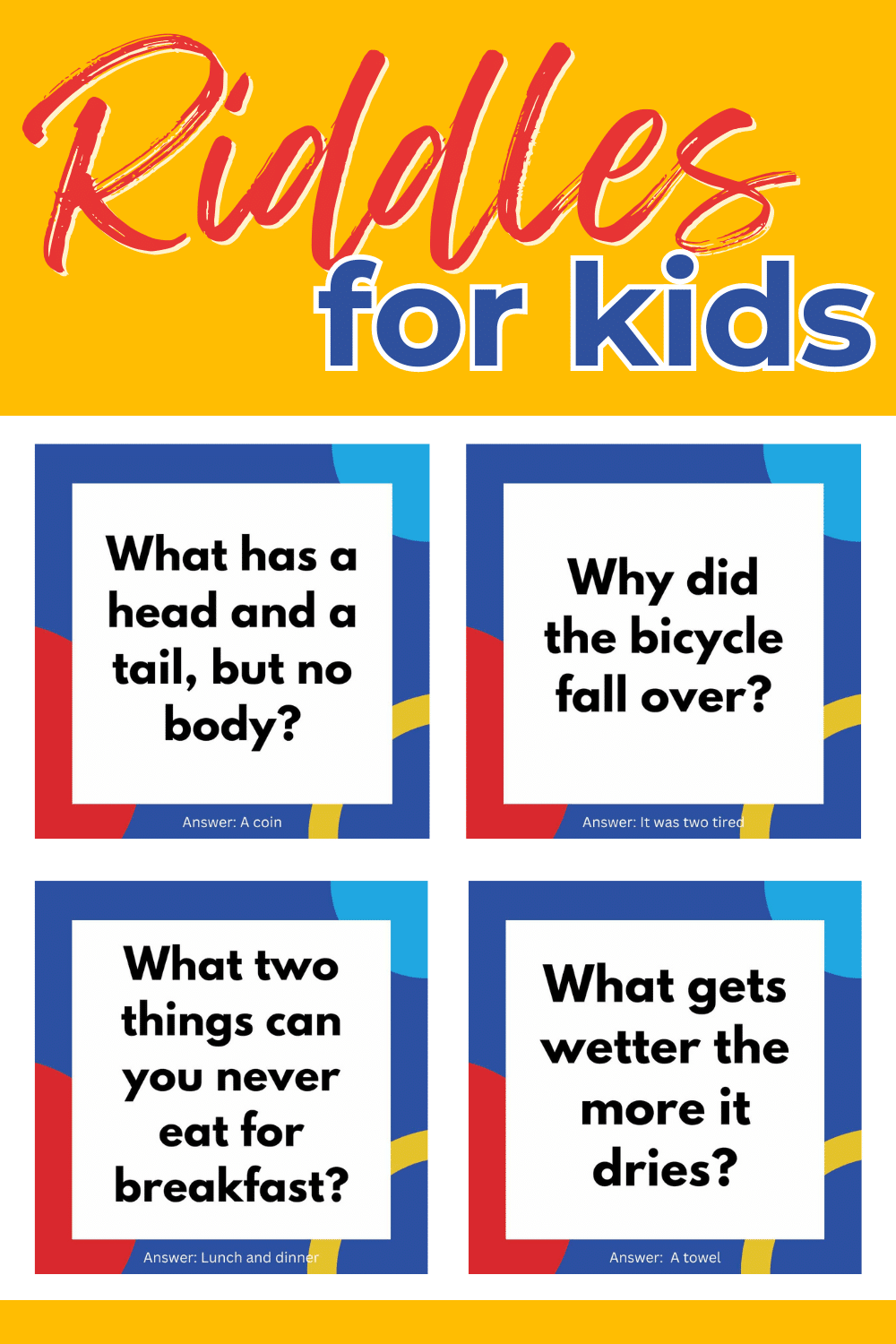
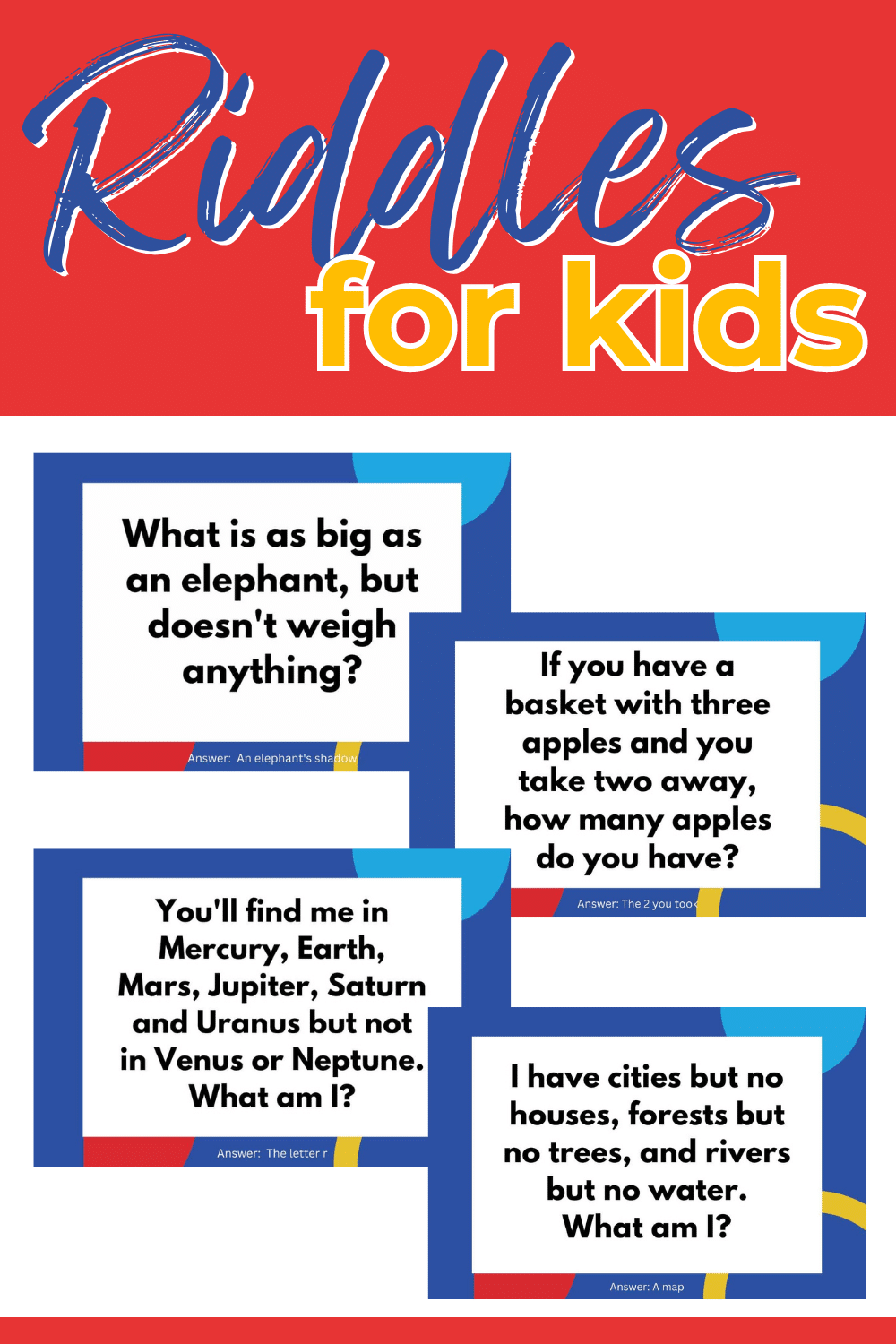
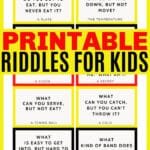
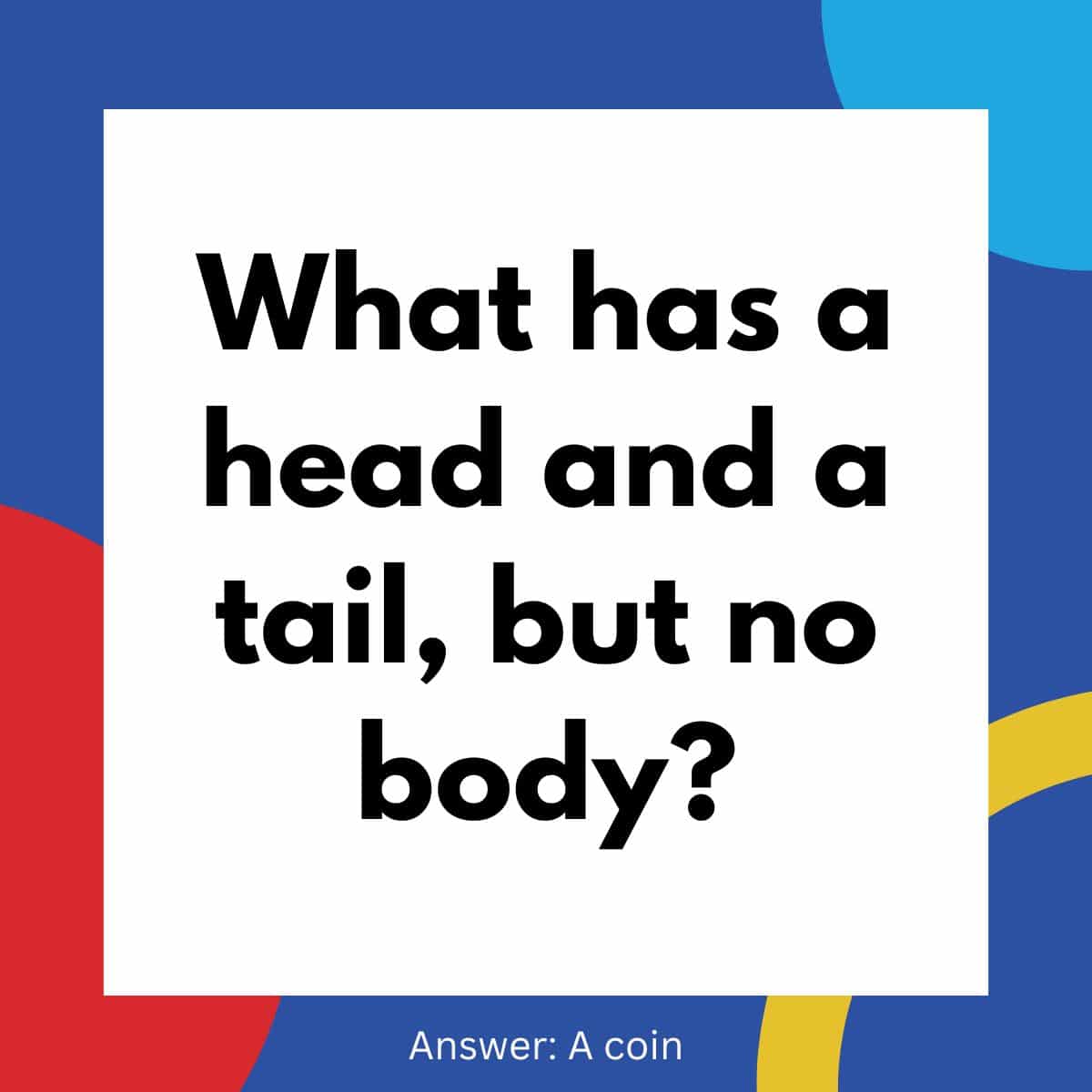
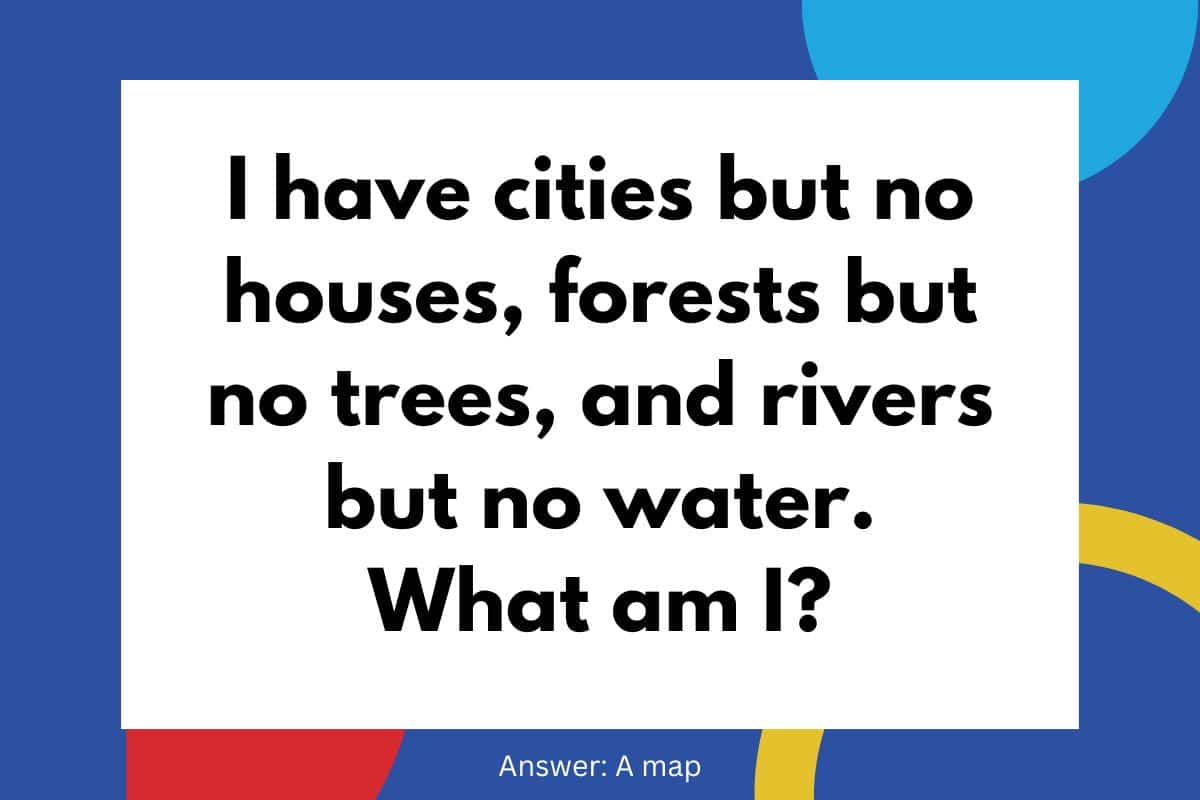
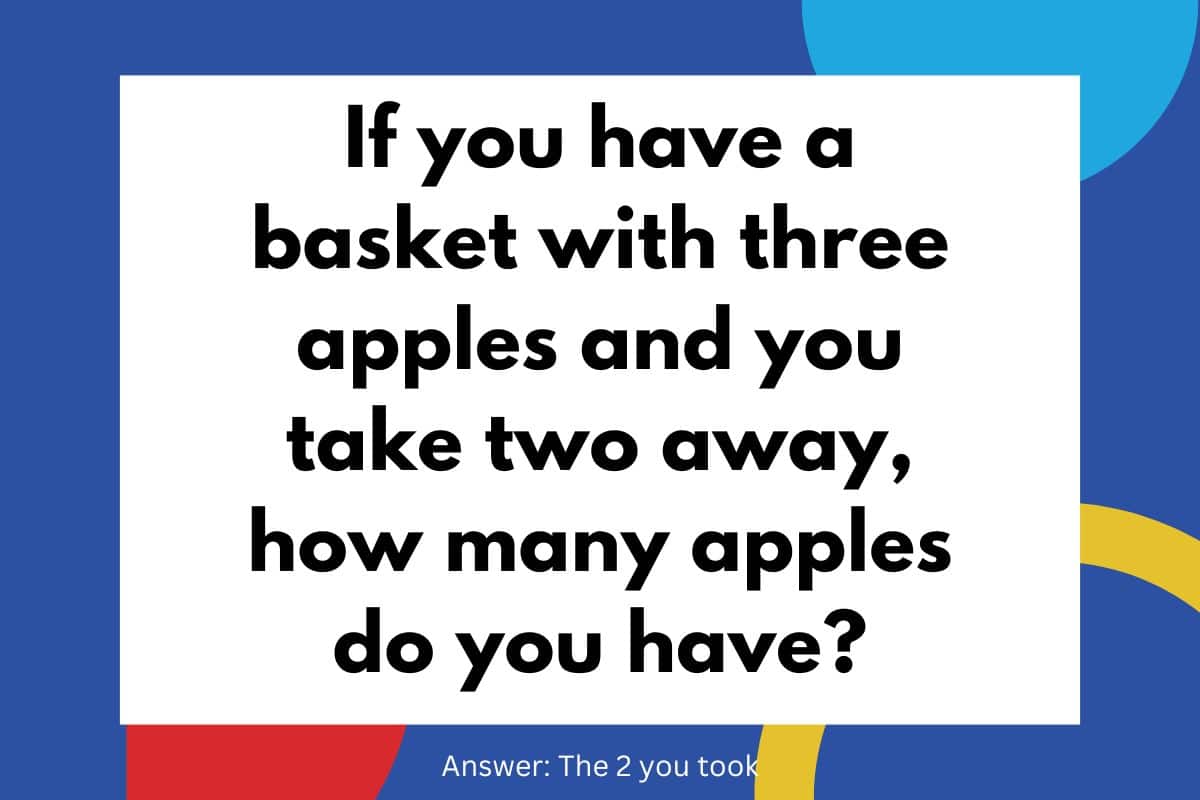
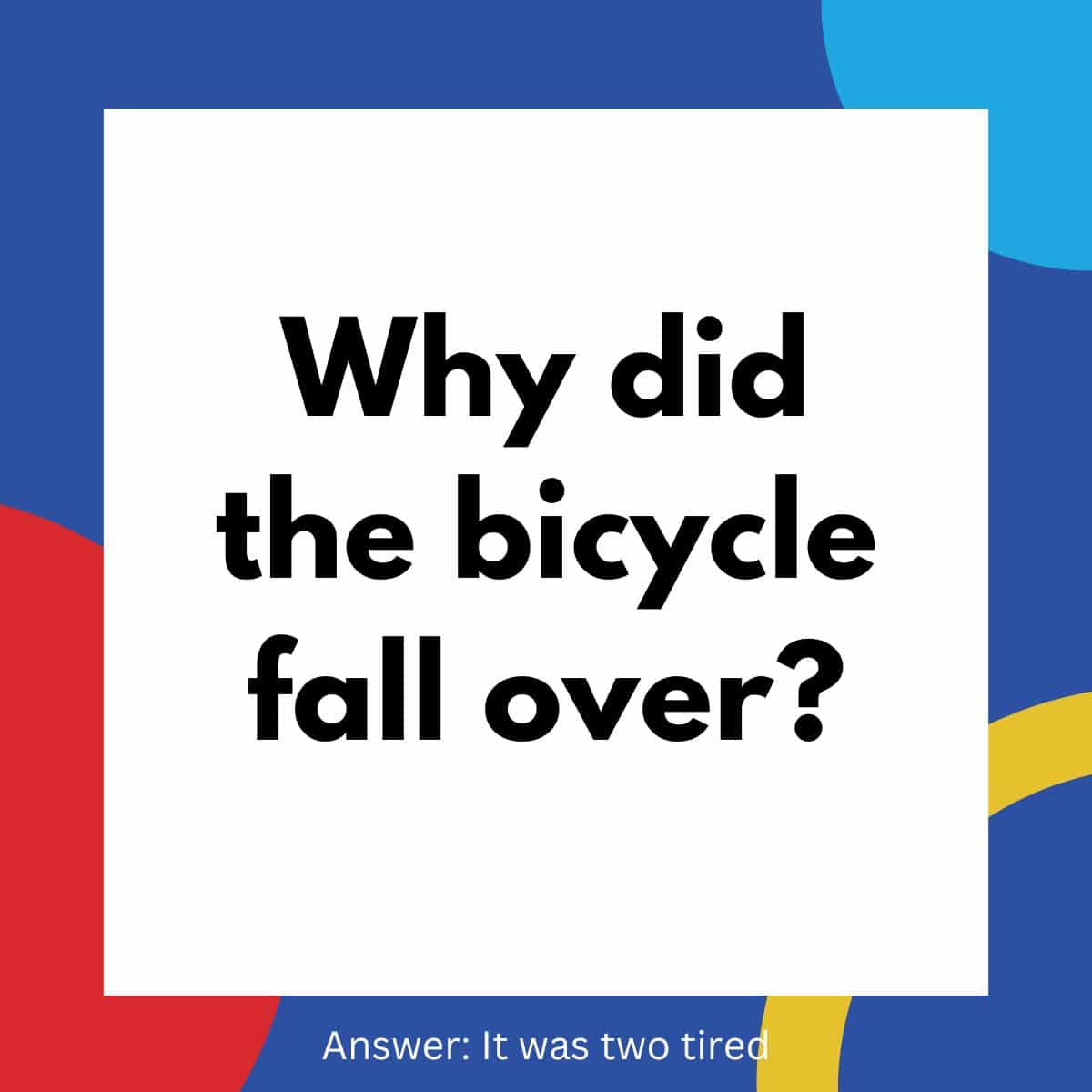
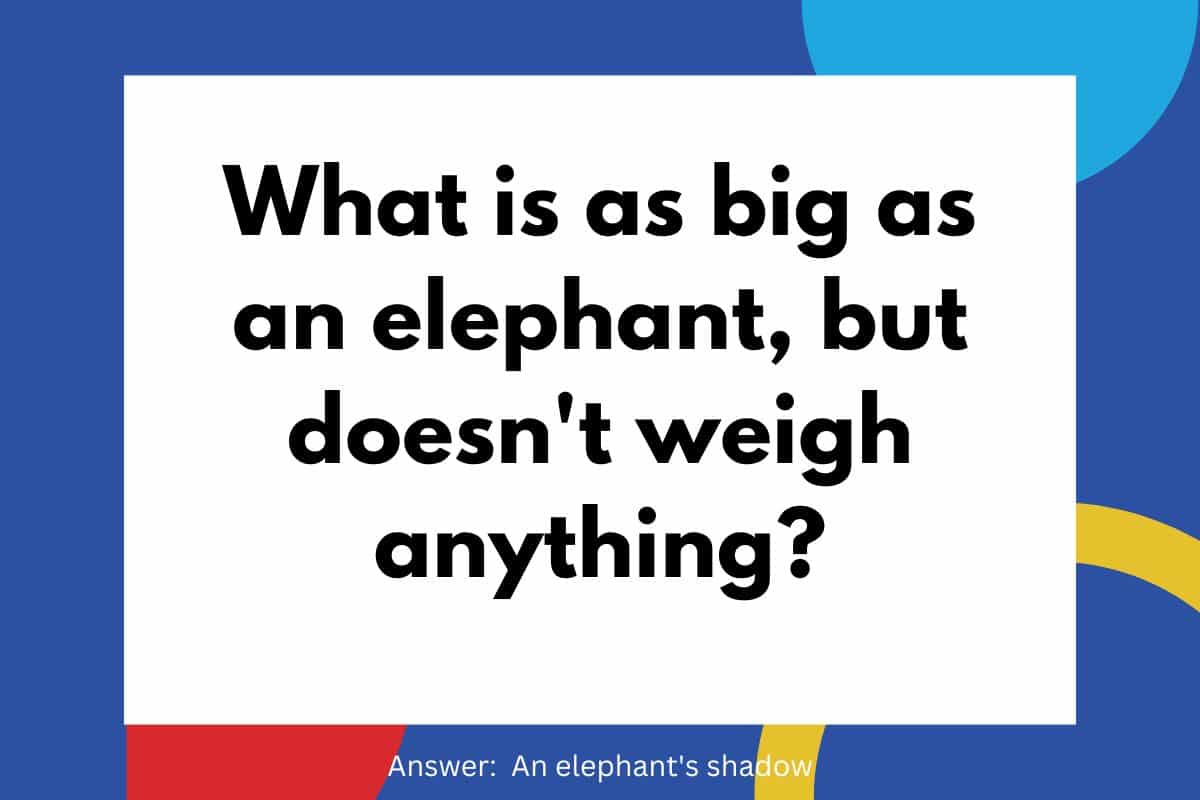
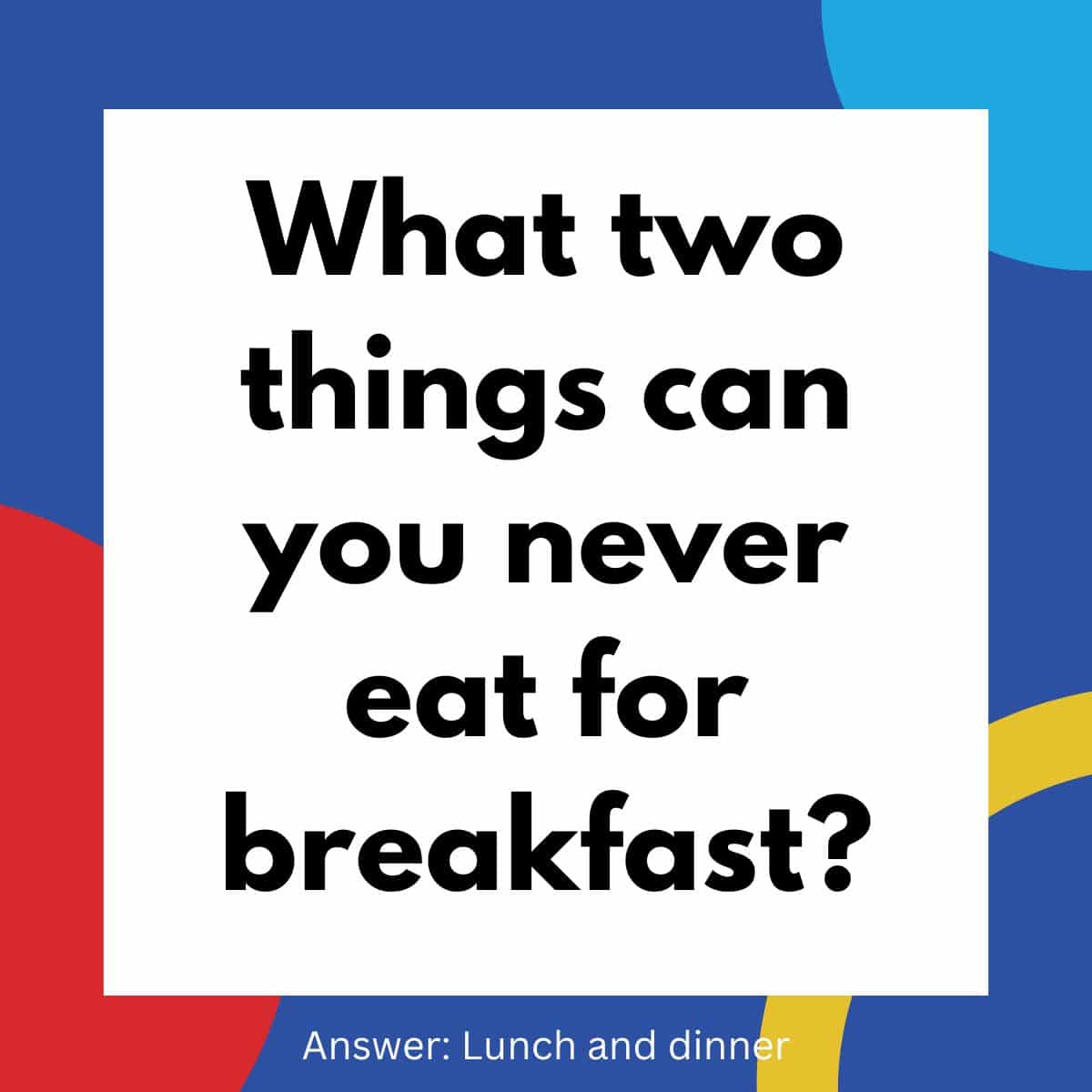
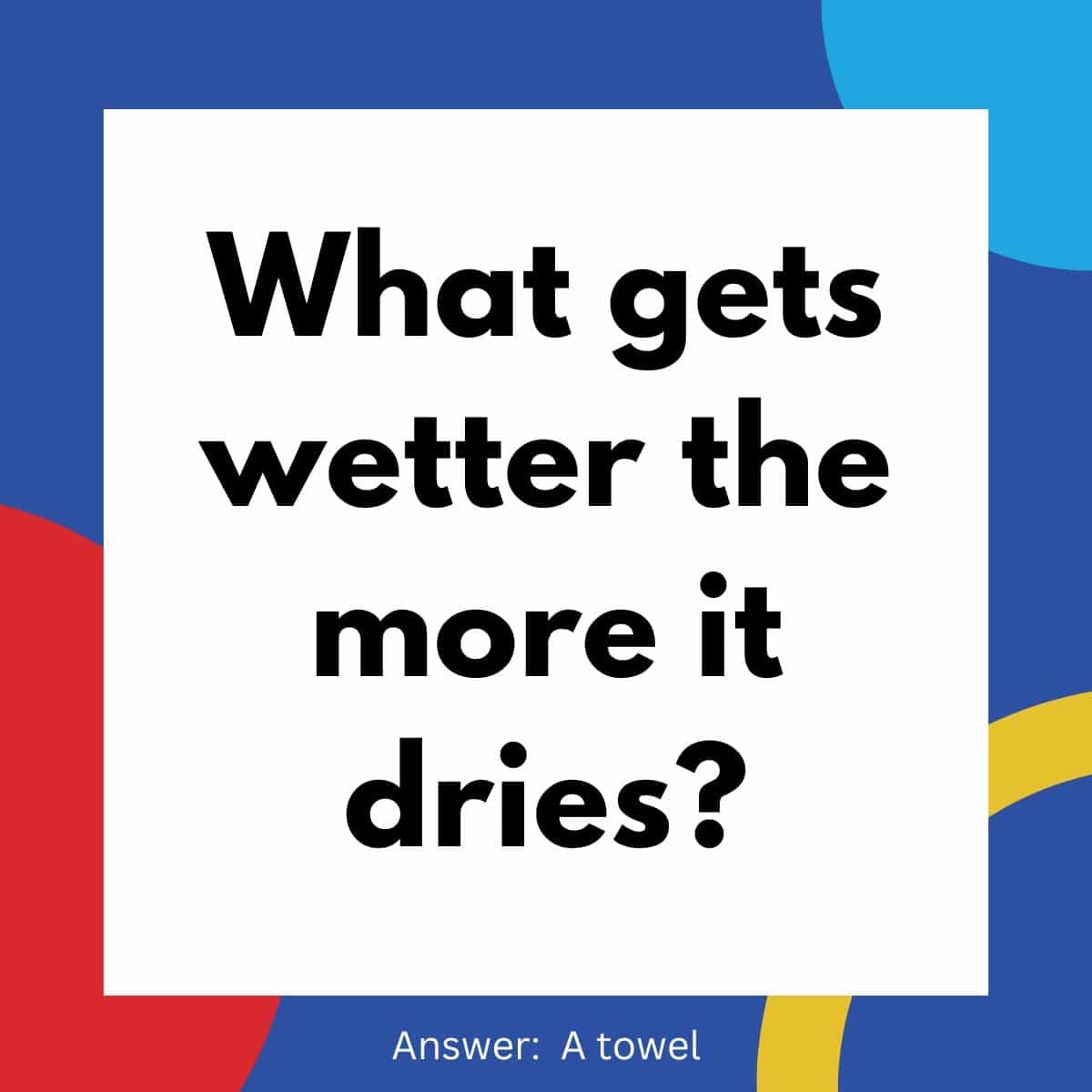
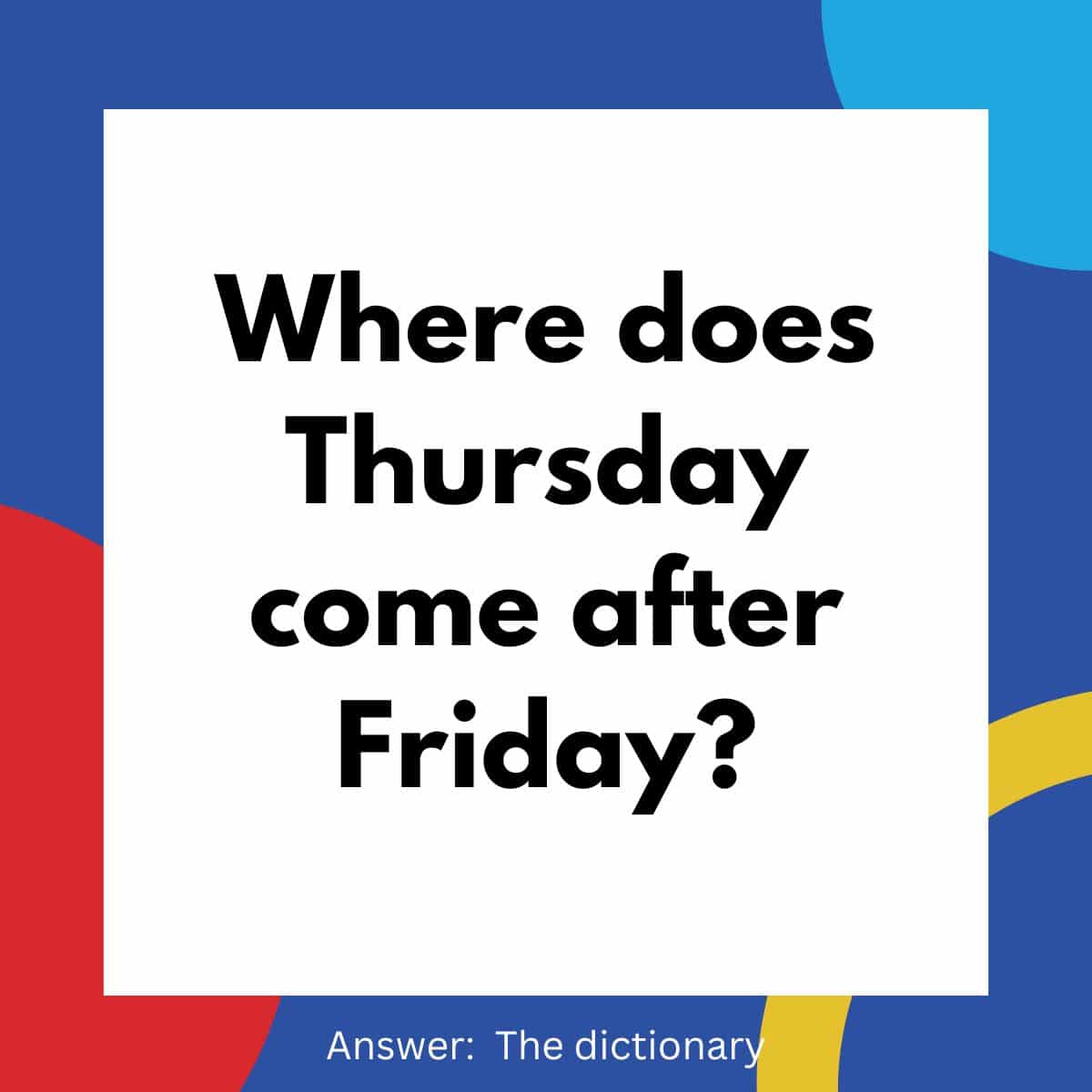
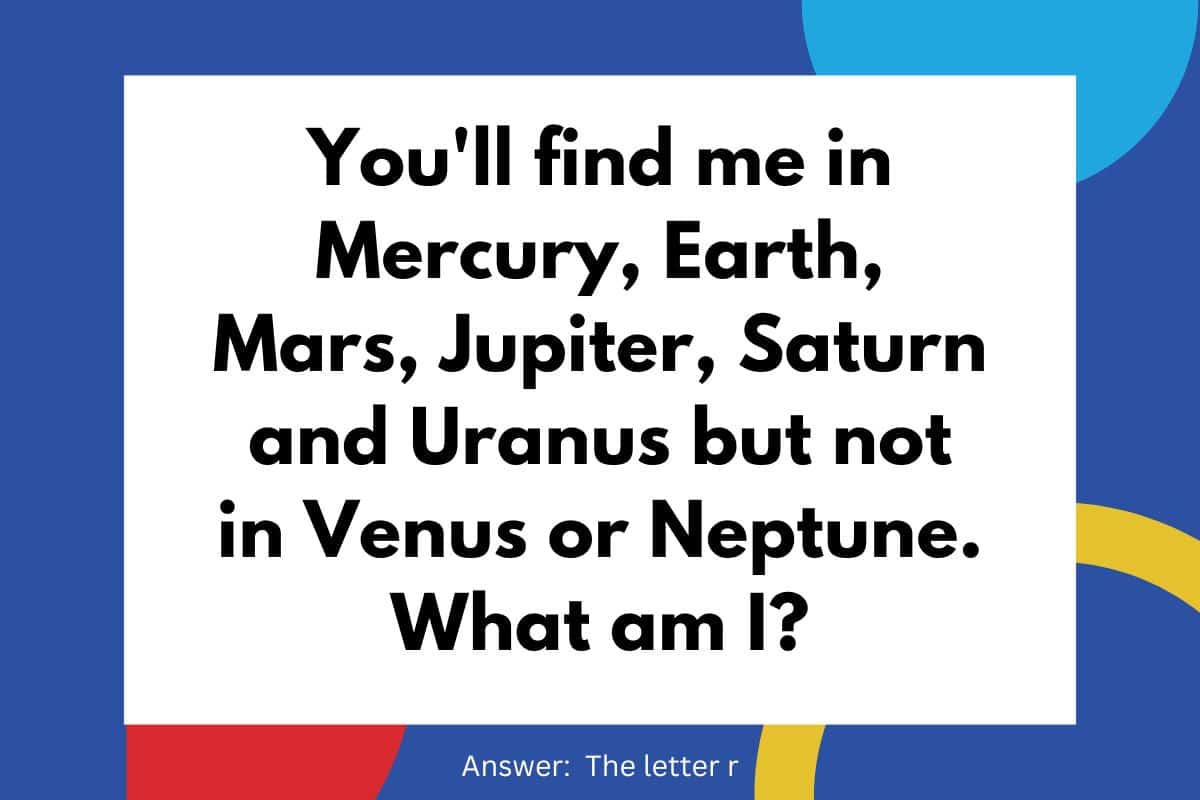
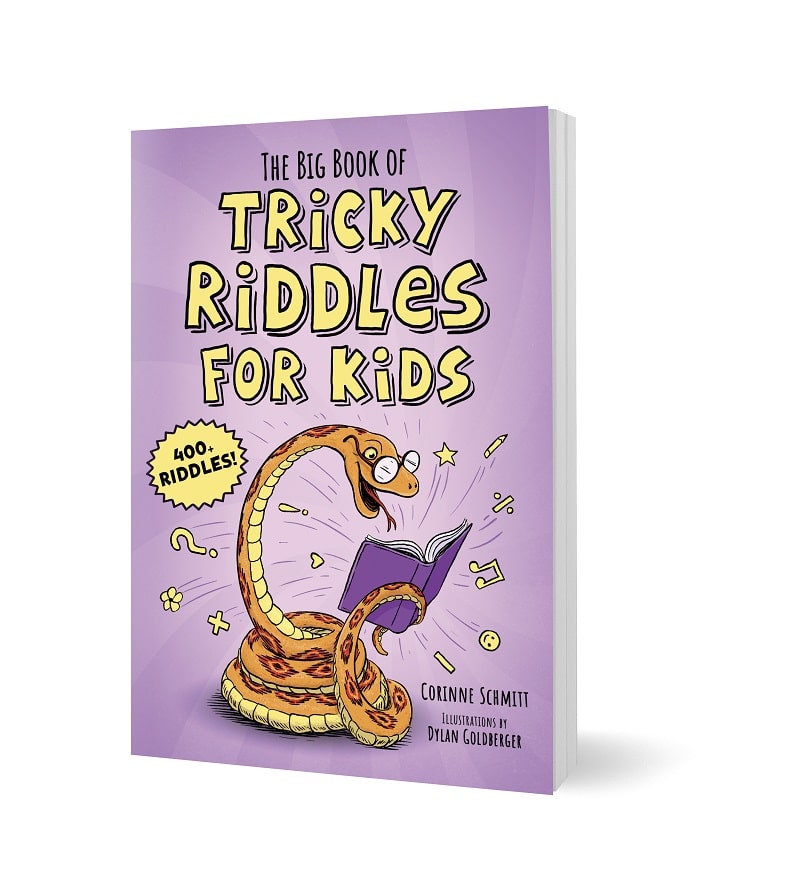
I loved it
That’s great! Thanks for commenting and letting us know.
Great!
Thank you!
Boyfriend and I love these!
That’s great! Thanks for letting me know.
signed up and got your email (in spam) but it wont let me confirm.
help please!!!
cathy
I just checked my email list and it says you’re confirmed, so you’re good to go!
really nice riddle thanks a lot
I’m glad you like them. Thanks for commenting.